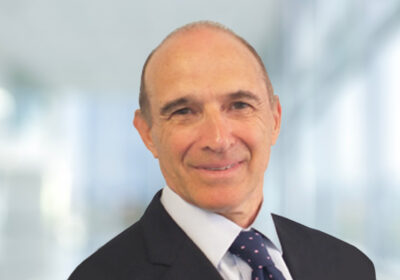
- Author: Jon Brett
- Posted: February 15, 2024
The Interview Process > Lessons learnt
Every CFO has endured an interview process, whether applying for a job or recruiting someone for their company.
The interview process is full of pitfalls – some people you interview seem like they ‘can swim in the Olympics’, but once you hire them, they suddenly need swimming lessons.
I had a colleague who had a repertoire of answers and speeches such that when you first met him, you were wildly impressed. This was someone you wanted to work with. Unfortunately, the gloss wore off very quickly and then there was very little substance.
What happens if you don’t make a fantastic first impression when you are the candidate, but you make a fantastic second impression. Making a good first impression is important as you may not get a second chance.
Are the candidates named references really worth anything?
Do people only offer names of those they know will give them good references?
I learnt an expensive lesson from a person we were about to sack after his first 8 weeks of employment. The head-hunters had contacted the referees who had given glowing reviews with comments like; “He leads from the front – prepares the financial statements – prepares the budgets and so on”.
However, when I phoned the CEO of the company where he had previously worked, he explained that “he did lead from the front – at 5pm he was the first out the door and everyone followed him. His contribution to preparing the budget was merely to collate the budget papers prepared by his colleagues.” This ‘CFO’ was one of the most impressive candidates for any executive position that I had interviewed.
References need careful consideration, especially those provided by candidates. Sometimes the most valuable insights can be gained from individuals who were not listed as references but have firsthand knowledge of the candidate’s work and behaviour.
The Interview Process
Having multiple interviews is essential. Some time ago, we interviewed a number of candidates for a board role and two were short listed:
For the first candidate, I was the second interviewer and was given the following feedback from the first round:
- Very impressive candidate
- Deep and broad experience that is highly relevant,
- Highly competent Chair of Audit
- Is the company too small for him?
- Gave succinct answers, which didn’t always give the depth of information
- Comes across as quite process-driven rather than big picture, although can traverse both. Came across as potentially dogmatic?
- Not sure about his ability to get deeply involved with the operational changes.
I was able to probe deeply into some of these points and my assessment of the first candidate was as follows:
- When more detail was asked on some of the answers, the candidate was able to provide a lot more information.
- My impression was the candidate was NOT process-driven rather than big picture. They gave a step-by-step answer on a particular process, to show not only their in-depth knowledge but also that they were involved from a director point of view.
- They didn’t come across as dogmatic but rather as needing to express valid concerns. They just needed to be heard when there was a contentious issue which could end up with adverse consequences for the company.
- I did not want the person to get deeply involved in operational issues. That is not the role of a non-executive director.
I was not present at the interview with the other candidate but the feedback was;
- Strong candidate
- Great breadth of highly relevant experience
- Style is aligned with the culture of ABC and the desired dynamics around the table
- Comes across as balanced, no ego
Based on the above we appointed both candidates to the board.
In another organisation, we were looking for a CFO and I recommended a friend of mine, a former top executive from an ASX50 company, so the job was well within his capabilities, and in theory he should have been a shoo-in for the position. When he failed to get the position, he phoned me to complain that they were looking for someone with FMCG experience, which was not his background, prompting him to question why I had recommended him for the position.
The Company’s feedback to me was very different. They knew he wasn’t working but that was no excuse for him to arrive in jeans and a t-shirt; today this would be slightly more acceptable. However, when he had to refer to his resume during the interview, this was a deal breaker. Having been with the same company for at least 20 years, it was unclear why he had needed to do that. Unfortunately, because he came from such a senior role, the recruitment company did not want to offend him with the real feedback.
Good questions for a prospective CFO to ask in a job interview:
- Integrity of financial statements
- Board dynamics
- How do C suite get on with the Board?
- What are the major issues?
- What would I, as a board member, need addressed
- What are the challenges that the company faces over the next few years.
Some final tips for jobseekers:
- Research the company where you are looking to be employed.
- Engage with every person at the interview. Beware of only looking at the person who asks the questions.
- Try to get feedback after the interview.
Author: Jon Brett
Jon Brett is aNon-Executive Director of Corporate Travel (CTM) and Chair of the Audit and Risk Committee. Jon is also a Non-Executive director of Raiz Invest (RZI) and the NASDAQ listed Mobilicom.
Jon is the author of the very successful podcast series “The Taking of Vocus” which chronicles the extraordinary rise of Vocus, what went wrong with the M2 merger and concludes with the privatisation of Vocus. The podcast can be found here via LinkedIn: https://www.linkedin.com/in/jon-brett-95734732/




